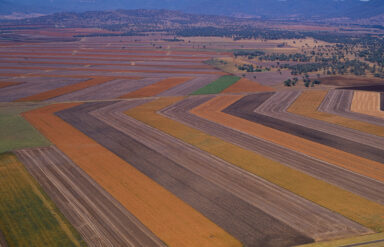Climate volatility is set to remain a feature of agricultural production in 2024 as Australia faces a strong likelihood of La Niña’s resurgence this year, as global weather models predict rapid cooling in the equatorial Pacific. If this occurs, it would be the fourth La Niña in five years, a frequency observed only twice since 1900.
Having deployed over $1.2bn into senior secured agricultural private credit over the past five years, we watched closely as recent summer rainfalls helped stabilise the cattle market (meat and livestock loans account for 6% of our allocated funds) and maintain soil moisture for broadacre farmers (2% allocation for our funds).
We’re seeing clear signs that asset transactions will drive the demand for growth capital in 2024 and expect to complete due diligence on +$500m of senior secured loan opportunities at modest loan-to-value ratios (55%) across horticulture, meat and livestock, dairy and supply chain assets during 2024.
The recent rains and optimism about the forward cash rate have translated to an uptick in farmland transactions in Australia and New Zealand across our portfolio, with 4 of our 22 agricultural loans reaching contractual close on asset sales during December 2023 and January 2024. All asset transactions are in line with or above our reliance valuations.
The above-average rainfall experienced by Australia’s eastern states in Q4 2023 led to an increase in sorghum and rice production estimates for 2023-24 (ABARES) with wheat production expected to reach 25.5m tonnes, in line with 10-year averages and barley also in line with 10-year averages at 10.8m tonnes.
Higher crop yields have benefited businesses operating downstream supply chain assets that process or move soft commodities. Last year, T-Ports, a South Australian grain handler and port infrastructure group that Merricks Capital’s funds finance, achieved its most profitable harvest since commencing operations in 2018 on the back of major summer rain events. The recently finished harvest collection period was also shortened by major summer rain events setting up excellent subsoil moisture for growers and seeding the next crop for the 2024/25 harvest.

Source: ABC News / IRI




